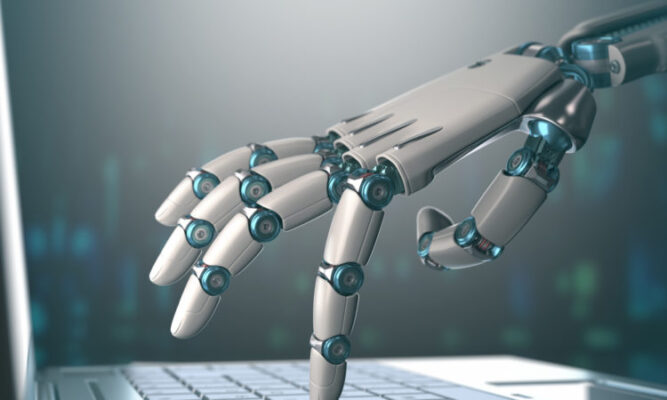
Impact of AI Developments in Software Testing
Last updated on June 23rd, 2022 at 04:29 am
Artificial Intelligence has phenomenal impacts on the software industry. With the help of automation and data-driven decision making, AI has been a base for many solutions in several areas of software development. From software design assistants to automatic code generation, AI has automated many manual tasks and decision making.
AI has driven many solutions in software testing. It has helped the development teams to achieve higher levels of efficiencies and shorten their development cycles. And the role of AI in software testing is still at its dawn. There is still a lot of untapped potential for artificial intelligence in software testing.
Artificial Intelligence in Software Testing
Artificial Intelligence has penetrated software testing and enabled teams to deliver robust, error-free software products in small batches. The use of AI in testing improves the quality of applications while saving the tester’s time and resources. It gives solutions to meet the expectations of enterprises about real-time risk assessment across all stages of the software delivery cycle.
The usage of a combination of cognitive automation, ML, natural language processing, and analytics in testing enables software to perform self-diagnosis and self-correction. AI also eliminates the need for testing the whole software again and again whenever the source code is changed.
DevOps supported with test automation enables Agile development teams to ship fail-safe products for SaaS or cloud deployment. A wide range of tools that leverage AI to create comprehensive test-cases and perform regression testing.
Let us now take a look at some of the many ways AI has impacted software testing:
1. Improved Object Application Categorization
Artificial Intelligence finds application in object application categorization in software testing. After the tools and testers are in place, unique pre-train controls are created. These testers can then be used to create a technical map to obtain labels for different controls after the order of the controls is categorized. Because of its significant impact in various fields, it is even more impactful. One such incredible use-case is the Pharma AI software being used by healthcare firms across the world. By using cutting-edge algorithms, they are able to leverage data and insights without hassle.
AI can observe users perform exploratory testing on the testing site and assess the user’s behavior. Once the assessment is complete, it can be used to assign, monitor, and classify the risk preference.
2. Automated Test Case Writing
Automated test case writing is, by far, the most significant application of artificial intelligence in test automation. By learning business usage scenarios, AI tools have proven to be very helpful. They can be used to collect valuable data such as HTML pages, loading time, screenshots, etc., from the software. This data then helps us to train ML models for expected patterns of the app.
These patterns are then compared with the software to be tested. All the errors, visual differences, slow runtimes, etc. are marked as potential issues. In some cases, the differences are valid. The tester can validate the marked issues in those cases.
3. Automated Visual Validation
Image-based testing is another testing technique that is getting widely popular. It is performed using automated visual validation tools. These tools equipped with machine learning, come handy in detecting UI anomalies. These precise tools can determine even the minor visual bugs that might be missed by the human eye.
The aim of UI testing is to check that each UI element is at the perfect shape, color, size, and position. It should also be checked that the UI elements are not overlapping with each other. These visual validation tools are incredibly accurate in finding these visual bugs.
4. Reduced UI-based Testing
Using test automation equipped with AI has enabled us to do automation without the user interface. We can use AI-based techniques to generate tests in non-functional layers like security and vulnerability, unit integration, and performance. Apart from this, the implementation of AI on various application logs develops bug prediction, early notification, self-healing, and auto-scaling capabilities.
AI algorithms are also used to enhance UI testing, predict the testing schedule, and determine the outcomes for subjective and complex tests. Simply put, the usage of AI will increase test coverage while increasing the depth and scope of those tests.
In conclusion, artificial intelligence facilitates software testing in many ways. AI-based testing boosts the overall efficiency of development teams. It has a substantial impact on testing cost, accuracy, and time.
Nitin Gupta is a voracious reader and an even passionate writer. Having worked with
numerous order booking apps companies and MNCs across the world, he really has very to
the point and enthralling insights about the industry and the people working in them.
